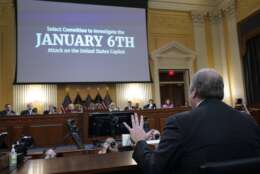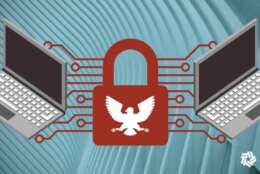Cybersecurity
-
Even cyberattacks that are launched by powerful governments often rely on the deception of public officials or employees, which means these attacks can be prevented with cybersecurity training.
August 05, 2022 -
Federal agencies and contractors need detailed intelligence to help them identify whether an IP address is associated with a VPN, proxy or a darknet so they can make smart decisions.
August 04, 2022 -
The Technology Modernization Fund Board and the Office of Management and Budget has made 18 awards, including four that specifically call out zero trust, worth more than $400 million since March 2021.
August 04, 2022 -
Text messages you send for official business on a government-issued phone are official records. Attorney John Mahoney joined Tom Temin to discuss what the Secret Service might face legally.
August 03, 2022 -
As of July, facial recognition technology is scanning departing travelers in 32 airports and all arriving air travelers.
August 01, 2022 -
Rep. Gerry Connolly’s letter to agency CIOs seeking details about their data center closure plans will help determine a new grading category for the Federal IT Acquisition Reform Act scorecard.
August 01, 2022 -
Two senators from opposite parties recently urged the Federal Trade Commission to investigate the phenomenon of TikTok.
August 01, 2022 -
Voluntary CMMC assessments are set to begin in late August, but the just-released assessment process is leaving a lot of people scratching their heads.
July 29, 2022 -
Shane Barney, the chief information security officer at the U.S. Citizenship and Immigration Service in the Homeland Security Department, said knowing what and who is on your network is a critical first step in the zero trust journey.
July 29, 2022 -
The health of the U.S. economy and well-being of our citizens relies on secure critical infrastructure but the Critical Infrastructure Information Act of 2002 has not been updated since it was first introduced.
July 27, 2022 -
CISA is about to get its own procurement authority but could they grow too large too fast? Alan Thomas, the former commissioner of the GSA's Federal Acquisition Service, now the chief operating officer of Intellibridge talked with Tom Temin on the Federal Drive.
July 26, 2022 -
As cyber threats have continued to increase in frequency and sophistication in recent years, the government signed the Infrastructure Investment and Jobs Act, which is designed to assist all levels of government in preventing, protecting and responding to cyber-attacks.
July 25, 2022 -
In today's Federal Newscast: A losing bidder for the DoD multibillion moving contract will submit additional evidence in its lawsuit. Disabled workers for federal contracting jobs will now get, at least, the federal minimum wage. And Senate lawmakers want agencies to begin preparing for a quantum leap in computing.
July 25, 2022 -
Brandon DeVault, a security author for Pluralsight and a cyber threat hunter on the Mission Defense Team for the Florida National Guard, writes about the power of zero trust and his passion for its implementation.
July 22, 2022 -
OPM wants to level the playing field for agencies trying to recruit and retain cybersecurity specialists.
July 21, 2022















